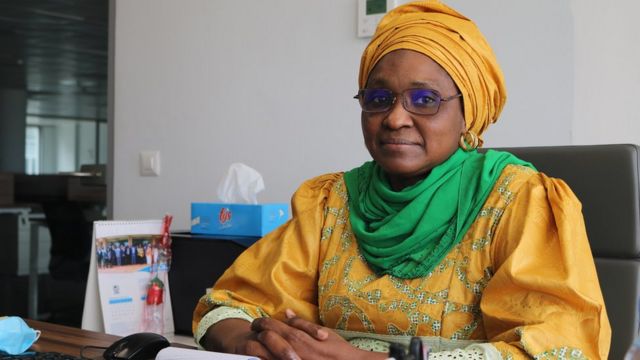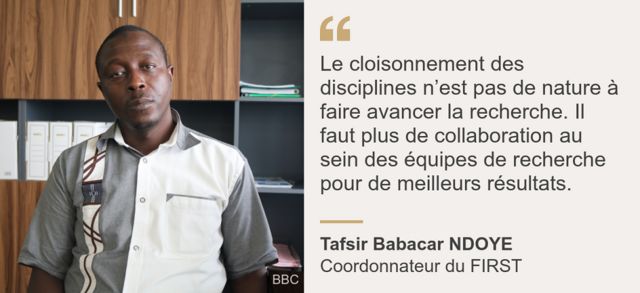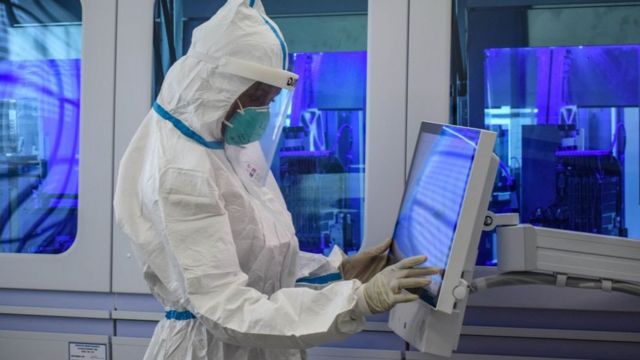 Les actualités de la BRVM en Flux RSS
Les actualités de la BRVM en Flux RSS
Nous agrégeons les sources d’informations financières spécifiques Régionales et Internationales. Info Générale, Economique, Marchés Forex-Comodities- Actions-Obligataires-Taux, Vieille règlementaire etc.
Enjoy a simplified experience
Find all the economic and financial information on our Orishas Direct application to download on Play StoreScientific research remains one of the poor relatives of the education system in Africa, although the authorities recognize its importance for the development of the continent.
This does not prevent many African countries like Senegal from promoting projects or joining initiatives aimed at boosting scientific research at the national and regional levels.
It is within this framework that the country joined the Sub-Saharan Africa Science Granting Councils Initiative (SGCI) in 2015. Senegal is one of the 15 member states of this initiative in which four African countries participate. from West.
Like Côte d'Ivoire, Ghana and Burkina Faso at the sub-regional level, Senegal participates in the various activities and training of this initiative around the four key components of the project.
The program has strengthened the capacities of Senegalese beneficiaries in several areas related to science, technology and research management. Added to this is the design and monitoring of programs, evaluation and learning based on the use of solid indicators.
One of the aspects of the support also promotes the exchange of knowledge with the private sector and the promotion of partnerships between the Senegalese National Council for Scientific Subsidies and other actors in the scientific system both locally and internationally.
Professor Soukèye Dia Tine, Director of Research and Technological Development Funding at the Senegalese Ministry of Higher Education, Research and Innovation (MESRI), points out that the SGCI is an initiative considered essential for anyone interested in scientific research, the economy and the development of the continent.
"We appreciate the four key components of the project and in particular the collaborative aspect of this Initiative both at the national level among Senegalese researchers and at the continental level with researchers and research funding bodies from other countries", said she declared.

Professor Soukèye Dia Tine, Director of Financing Research and Technological Development of Senegal
The Sub-Saharan Africa Science Granting Councils Initiative (SGCI) has strengthened South-South cooperation in scientific research among Sub-Saharan African countries over the past five years through various study tours.
Senegal and Burkina Faso thus seized this opportunity to find common ground and work together on two scientific projects of great human interest for both countries.
The first team of researchers worked on a health project entitled “ How to improve the multisectoral management of chronic diseases among the populations of Burkina Faso and Senegal ”.
This research-action carried out by the holders of the strategic issues of chronic disease management has important similarities in the two countries.
The second team focused its work on an environmental project in the Kaolak region (south-eastern Senegal) on “ the development of salty lands to help improve the lives of vulnerable populations in the context of climate change in West Africa. 'West '.
Researchers from different disciplines and universities were thus able to work in the same research teams.
Collaborative scientific research remains something difficult in some universities where researchers used to implement their projects independently or with other researchers in the same field of study.
However, thanks to these two transnational projects, sociologists, anthropologists, doctors, health economists and geographers from Senegal and Burkina Faso could easily share their knowledge and implement their research projects.

“Most of the scientific research projects in Africa concern cross-border or transnational issues because African countries share the same health, environmental and economic problems”.
“Why do we have to work only at the national level on the same development problems if we can find a solution for our different countries by working together? asks Professor Soukèye Dia Tine.
The projects funded by SGCI in Senegal and Burkina Faso are the beginning of a long-term answer to this question, not only for basic research, but also to face financial problems.
In reality, there is a lack of resources for funding scientific research and innovation in Senegal, as in most African countries.
Senegal's approach is therefore to continue to work for better South-South collaboration that will make it possible to better use resources – often limited – to obtain better results.
The experience with Burkina Faso could lead to long-term collaboration aimed at better using the resources of both countries to finance transnational research projects.
South-South cooperation also opens up opportunities and Senegal wants to promote it in order to find new partnerships at the international level.
This is already the case with Japan. Senegal has joined the AJ-COR, Africa-Japan Collaborative Research, for research projects in the field of the environment.
Senegal will continue to benefit from all four components of the Sub-Saharan Africa Science Granting Councils Initiative (SGCI) as the second phase of the project is ready to kick off.
During the first phase, the research funds were managed by international organizations in direct contact with the research teams.
In this second phase, the National Council for Scientific Subsidies, the FIRST ( Scientific and Technical Research Impulse Fund ), will be responsible for managing the funds, organizing and managing the calls for proposals.
It is important to note that Senegal's national research funding body is the Directorate of Scientific Research and Technological Development Funding.
This department is placed under the authority of the Director General for Research and Innovation.

However, the FIRST, although the best known and most important in terms of budget, is only one of the various mechanisms or tools used by the Scientific Research and Technological Development Funding Directorate to fund scientific research in Senegal.
Currently, Senegal funds only 15-20 projects each year through FIRST with a fund of approximately $522,000.
Each selected proposal receives around $35,000. There is also an additional fund of $260,000 dedicated to scientific and technical support, but only for projects and initiatives by women researchers.
The universe of scientific research remains a fairly competitive universe with often limited resources but where it is necessary to cultivate equality of opportunity.
The Senegalese Ministry of Higher Education, Research and Innovation (MESRI) has therefore put in place a solid funding mechanism, based on transparency, good governance and accountability.
The Sub-Saharan Africa Science Granting Councils Initiative (SGCI) has also emphasized these points in the management of scientific research.
The proof is that the teams of researchers who received the grants not only had to manage their research activities, but also account for the use of the allocated resources.
For Professor Soukèye Dia Tine, Senegal must be able to improve the quantity and quality of scientific research.
She hopes that for the “second phase of the SGCI Initiative, the FIRST will receive more high-quality proposals aimed at effectively solving the problems facing the Senegalese population”.
Of course, these proposals should once again highlight and promote the collaborative aspect at the research level.
Vous devez être membre pour ajouter un commentaire.
Vous êtes déjà membre ?
Connectez-vous
Pas encore membre ?
Devenez membre gratuitement
18/02/2026 - Information générale
17/02/2026 - Information générale
16/02/2026 - Information générale
13/02/2026 - Information générale
11/02/2026 - Information générale
10/02/2026 - Information générale
09/02/2026 - Information générale
06/02/2026 - Information générale
05/02/2026 - Information générale

18/02/2026 - Information générale

17/02/2026 - Information générale

16/02/2026 - Information générale
